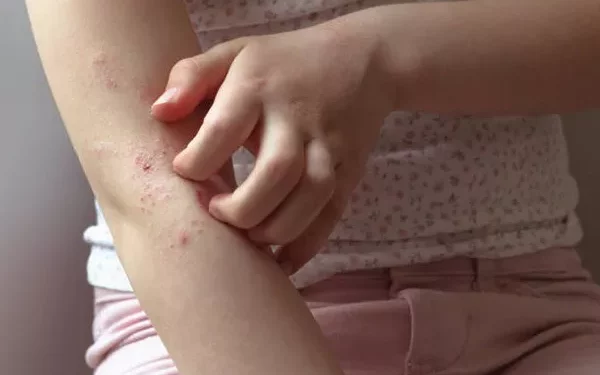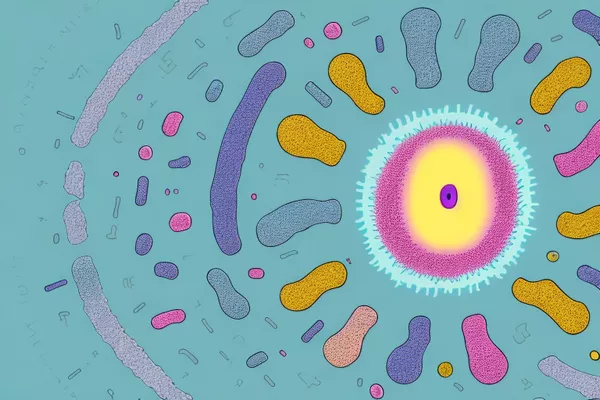Eczema, also known as atopic dermatitis, is a skin condition that causes inflammation, redness, and itching. While eczema is not contagious, it can be uncomfortable and frustrating. The healing process for eczema can vary depending on the severity and triggers, but there are several steps you can take to speed up the healing process. This article will explore effective methods to help eczema heal faster and manage flare-ups more efficiently.
Understand the Causes and Triggers of Eczema
To effectively treat eczema and promote faster healing, it’s important to understand what causes and triggers the condition. Eczema occurs when the skin’s protective barrier is compromised, making it more vulnerable to irritants, allergens, and infections. Some common triggers of eczema flare-ups include:
Dry skin: Lack of moisture can make eczema symptoms worse.
Allergens: Dust mites, pet dander, mold, or pollen can trigger flare-ups.
Irritants: Certain soaps, detergents, fabrics, and chemicals can cause skin irritation.
Weather: Extreme temperatures, especially cold, dry air, can aggravate eczema.
Stress: Emotional stress can worsen eczema symptoms.
Infections: Bacterial or viral infections can cause eczema to flare.
Identifying your triggers and minimizing exposure to them can go a long way in helping eczema heal faster.
Keep the Skin Moisturized
One of the most important steps in managing eczema is keeping the skin moisturized. Dry skin is a common cause of eczema flare-ups and can make the condition worse. Moisturizing helps restore the skin’s natural barrier, reducing the risk of irritation and inflammation.
Use fragrance-free moisturizers: Choose creams or ointments that are free of fragrances, dyes, and alcohol. These ingredients can irritate the skin and make eczema worse.
Apply moisturizers immediately after bathing: After you bathe, pat your skin dry with a soft towel, and while your skin is still slightly damp, apply a generous amount of moisturizer. This helps lock in moisture.
Moisturize multiple times a day: For best results, apply moisturizer at least 2-3 times a day, especially in areas that are prone to dryness.
Consider using thicker creams or ointments instead of lotions, as they provide a more effective barrier and retain moisture better.
Avoid Hot Showers or Baths
Hot water can strip the skin of its natural oils, making it more prone to dryness and irritation. Instead of hot showers or baths, opt for lukewarm water.
Limit your bathing time: Try to keep baths or showers under 10 minutes to prevent your skin from drying out.
Use mild, fragrance-free soap: Choose soaps or cleansers that are gentle on the skin and free of harsh chemicals. Look for products labeled for sensitive skin.
Apply moisturizer after bathing: After you finish your bath or shower, apply a moisturizer to keep your skin hydrated.
Use Gentle, Fragrance-Free Skincare Products
The skincare products you use on your body can have a significant impact on eczema. Many conventional skincare products contain fragrances, alcohol, and other chemicals that can trigger or worsen eczema flare-ups. To help your skin heal faster, choose products designed specifically for sensitive skin.
Fragrance-free lotions and soaps: Look for lotions, soaps, and shampoos that are labeled as “fragrance-free” and “for sensitive skin.” These products are less likely to irritate your skin.
Avoid harsh chemicals: Products with alcohol, parabens, or sulfates can dry out your skin. Stick to natural or hypoallergenic products whenever possible.
Manage Stress Effectively
Stress is a common trigger for eczema flare-ups. When you’re stressed, your body releases hormones like cortisol, which can worsen inflammation in the skin. Managing stress effectively can help reduce flare-ups and promote faster healing.
Practice relaxation techniques: Meditation, deep breathing, yoga, or mindfulness can help reduce stress and keep eczema flare-ups under control.
Get enough sleep: Lack of sleep can worsen eczema symptoms. Try to establish a regular sleep schedule and ensure you’re getting enough rest each night.
Exercise regularly: Physical activity can help reduce stress and improve your overall well-being. Just be sure to shower and moisturize afterward to prevent any irritation from sweat.
Avoid Scratching
One of the most challenging aspects of eczema is the intense itching. Scratching the skin can worsen the inflammation, lead to infections, and prolong the healing process. It’s important to resist the urge to scratch.
Keep nails trimmed: Keeping your nails short can reduce the damage caused by scratching and minimize the risk of infection.
Use cold compresses: If you feel the urge to scratch, try applying a cold compress or ice pack to the affected area. This can help numb the itching sensation and reduce inflammation.
Wear soft, breathable clothing: Tight or rough fabrics like wool can irritate the skin. Opt for loose, cotton clothing to prevent further irritation.
Consider Topical Treatments
In addition to moisturizing, certain topical treatments can help speed up the healing of eczema.
Hydrocortisone creams: Over-the-counter hydrocortisone creams can help reduce inflammation and itching. Use these sparingly, as overuse can thin the skin.
Prescription topical steroids: If your eczema is more severe, your doctor may prescribe a stronger topical steroid to help manage symptoms.
Topical calcineurin inhibitors: These non-steroidal creams, such as tacrolimus or pimecrolimus, can help reduce inflammation without the side effects of steroids.
Soothing ointments: Products containing ingredients like aloe vera, chamomile, or calendula can help soothe irritated skin and promote healing.
Keep Your Environment Moist
Environmental factors, especially low humidity, can dry out the skin and make eczema worse. Keeping your home environment moisturized can help your skin heal faster.
Use a humidifier: If you live in a dry climate or during the winter months when indoor heating can dry out the air, consider using a humidifier. This can help keep the air moist and prevent your skin from becoming overly dry.
Avoid direct heat: Try to avoid sitting directly under heating vents or in front of space heaters. The heat can further dry out your skin and exacerbate eczema symptoms.
Stay Hydrated
Drinking enough water is essential for maintaining healthy skin. Dehydration can cause your skin to dry out, which may worsen eczema.
Drink plenty of water: Aim to drink at least 8 glasses of water a day to keep your skin hydrated from the inside out.
Limit dehydrating drinks: Beverages like alcohol and caffeinated drinks can dehydrate your body and skin. Try to limit these and balance them with plenty of water.
Protect Your Skin from Irritants
Certain environmental factors can trigger eczema flare-ups or make symptoms worse. It’s important to protect your skin from these irritants.
Wear protective clothing: When handling cleaning products, chemicals, or allergens, wear gloves and long sleeves to protect your skin.
Avoid harsh weather: Cold, dry weather can dry out the skin, while hot, humid conditions can cause sweating and irritation. Try to limit exposure to extreme weather, and dress appropriately for the conditions.
Consult a Dermatologist
If your eczema is not improving or is severely affecting your quality of life, it’s a good idea to see a dermatologist. They can help determine the underlying cause of your eczema and provide prescription treatments that may be more effective than over-the-counter options.
Patch testing: A dermatologist can perform patch testing to identify specific allergens or irritants that may be triggering your eczema.
Advanced treatments: If your eczema is resistant to conventional treatments, your dermatologist may recommend more advanced therapies, such as light therapy or oral medications.
Conclusion
Eczema can be a frustrating condition, but with the right approach, it’s possible to help your skin heal faster and reduce flare-ups. By understanding the causes and triggers, moisturizing your skin regularly, avoiding irritants, and managing stress, you can take proactive steps to promote healing and prevent further outbreaks. Always consult with a healthcare provider if your symptoms persist or worsen, as they can provide personalized recommendations and treatments for managing eczema effectively.
Related topics

























